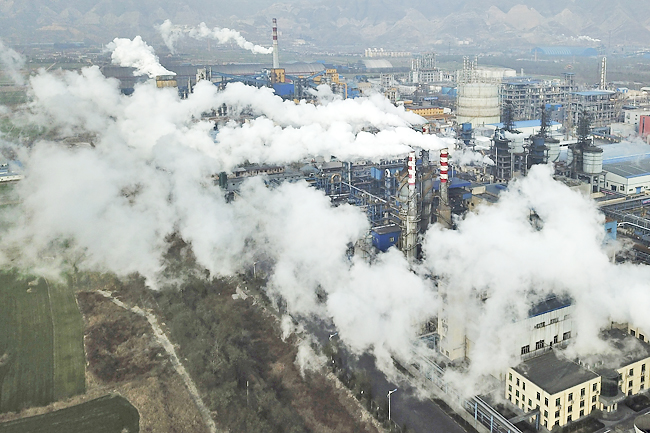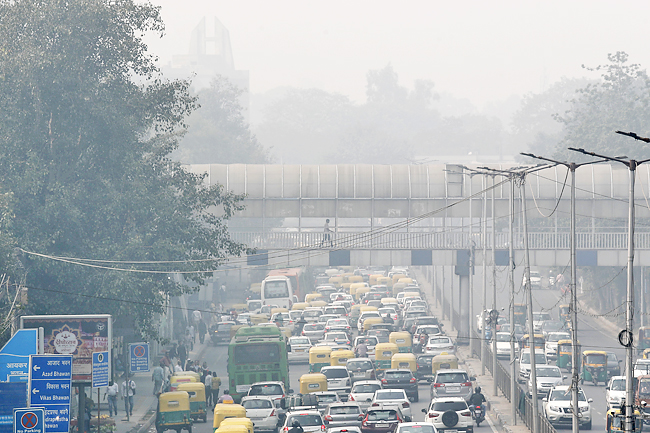Seth Borenstein
AP – A new study blames pollution of all types for nine million deaths a year globally, with the death toll attributed to dirty air from cars, trucks and industry rising 55 per cent since 2000.
That increase is offset by fewer pollution deaths from primitive indoor stoves and water contaminated with human and animal waste, so overall pollution deaths in 2019 are about the same as 2015.
“Nine million deaths is a lot of deaths,” said Director of the Global Public Health Program and Global Pollution Observatory at Boston College Philip Landrigan.
“The bad news is that it’s not decreasing,” Landrigan said. “We’re making gains in the easy stuff and we’re seeing the more difficult stuff, which is the ambient (outdoor industrial) air pollution and the chemical pollution, still going up.”
It doesn’t have to be this way, researchers said.
“They are preventable deaths. Each and every one of them is a death that is unnecessary,” said Dean of the George Washington University School of Public Health Dr Lynn Goldman who wasn’t part of the study. She said the calculations made sense and if anything. It was so conservative about what it attributed to pollution, that the real death toll is likely higher.
The certificates for these deaths don’t say pollution. They list heart disease, stroke, lung cancer, other lung issues and diabetes that are “tightly correlated” with pollution by numerous epidemiological studies, Landrigan said. To then put these together with actual deaths, researchers look at the number of deaths by cause, exposure to pollution weighted for various factors, and then complicated exposure response calculations derived by large epidemiological studies based on thousands of people over decades of study, he said. It’s the same way scientists can say cigarettes cause cancer and heart disease deaths.
“That cannon of information constitutes causality,” Landrigan said. “That’s how we do it.”


Five outside experts in public health and air pollution, including Goldman, told The Associated Press the study follows mainstream scientific thought. Dr Renee Salas, an emergency room doctor and Harvard professor who wasn’t part of the study, said “the American Heart Association determined over a decade ago that exposure to (tiny pollution particles) like that generated from the burning of fossil fuels is causal for heart disease and death.”
“While people focus on decreasing their blood pressure and cholesterol, few recognise that the removal of air pollution is an important prescription to improve their heart health,” Salas said.
Three-quarters of the overall pollution deaths came from air pollution and the overwhelming part of that is “a combination of pollution from stationary sources like coal-fired power plants and steel mills on one hand and mobile sources like cars, trucks and buses. And it’s just a big global problem,” said public health physician Landrigan. “And it’s getting worse around the world as countries develop and cities grow.”
In New Delhi, India, air pollution peaks in the winter months and last year the city saw just two days when the air wasn’t considered polluted. It was the first time in four years that the city experienced a clean air day during the winter months.
That air pollution remains the leading cause of death in South Asia reconfirms what is already known, but the increase in these deaths means that toxic emissions from vehicles and energy generation is increasing, said director at the advocacy group Centre for Science and Environment in New Delhi Anumita Roychowdhury.
“This data is a reminder of what is going wrong but also that it is an opportunity to fix it,” Roychowdhury said.
Pollution deaths are soaring in the poorest areas, experts said.
“This problem is worst in areas of the world where population is most dense (for example Asia) and where financial and government resources to address the pollution problem are limited and stretched thin to address a host of challenges including health care availability and diet as well as pollution,” said President of the Health Effects Institute Dan Greenbaum who wasn’t part of the study.
In 2000, industrial air pollution killed about 2.9 million people a year globally. By 2015 it was up to 4.2 million and in 2019 it was 4.5 million, the study said. Toss in household air pollution, mostly from inefficient primitive stoves, and air pollution killed 6.7 million people in 2019, the study found.
Lead pollution – some from lead additive which has been banned from gasoline in every
country in the world and also from old paint, recycling batteries and other manufacturing – kills 900,000 people a year, while water pollution is responsible for 1.4 million deaths a year.
Occupational health pollution adds another 870,000 deaths, the study said.
In the US, about 20,000 people a year die from lead pollution-induced hypertension, heart disease and kidney disease, mostly as occupational hazards, Landrigan said. Lead and asbestos are America’s big chemical occupational hazards, and they kill about 65,000 people a year from pollution, he said. The study said the number of air pollution deaths in the US in 2019 was 60,229, far more than deaths on American roads, which hit a 16-year peak of nearly 43,000 last year.
Modern types of pollution are rising in most countries, especially developing ones, but fell from 2000 to 2019 in the US, the EU and Ethiopia. Ethiopia’s numbers can’t quite be explained and may be a reporting issue, said study co-author Richard Fuller, founder of the Global Alliance on Health and Pollution and president of Pure Earth, a non-profit that works on pollution clean-up programs in about a dozen countries.
The study authors came up with eight recommendations to reduce pollution deaths, highlighting the need for better monitoring, better reporting and stronger government systems regulating industry and cars.
“We absolutely know how to solve each one of those problems,” Fuller said. “What’s missing is political will.”







